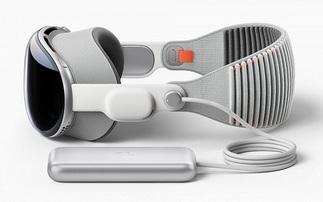Staff astounded by speed of innovation on AI speech recognition
Microsoft AI researchers have claimed that the latest generation of speech recognition technology being developed in the company's labs is on a par with that of a human being. "Microsoft has mad...
To continue reading this article...
Join Computing
- Unlimited access to real-time news, analysis and opinion from the technology industry
- Receive important and breaking news in our daily newsletter
- Be the first to hear about our events and awards programmes
- Join live member only interviews with IT leaders at the ‘IT Lounge’; your chance to ask your burning tech questions and have them answered
- Access to the Computing Delta hub providing market intelligence and research
- Receive our members-only newsletter with exclusive opinion pieces from senior IT Leaders






















